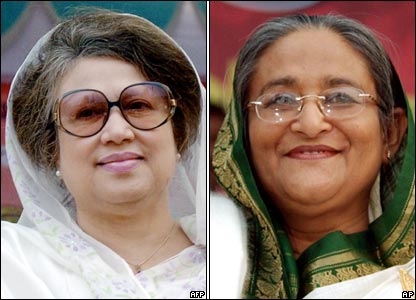EU calls on Bangladeshi parties to create a "healthy democracy"
 Dhaka - The European Union Thursday stressed the need for better parliamentary partnership between Bangladesh's ruling and opposition parties for a healthy growth of the country's nascent democracy.
Dhaka - The European Union Thursday stressed the need for better parliamentary partnership between Bangladesh's ruling and opposition parties for a healthy growth of the country's nascent democracy.
"Discussions, debates and critical analyses of the problems should be there [in parliament] in a healthy democracy," Stefan Frowein, the head of the delegation of the EU's executive, the European Commission to Dhaka, told a press conference in Dhaka.
The government needed to give the necessary space to the opposition, although it is small in terms of parliamentary seats, to overcome possible future difficulties, especially in the wake of global recession, he said.
Bangladesh returned to democracy only four months ago, after two years under the military-backed government of Fakhruddin Ahmed. Politically, the country is still divided between the Awami League of Prime Minister Sheikh Hasina Wazed and the Bangladesh Nationalist Party of former premier Khaleda Zia.
A power struggle between the two parties had led to political turmoil in late 2006 that prompted a military intervention in early 2007.
The EU closely watched the political changeovers and supported Bangladesh to its transition to democracy. It also encouraged the two sides to work together in facing the challenges of climate change and counter-terrorism.
Swedish ambassador Britt Falkman Hagstrom, the current chair of the EU in Bangladesh, on Thursday said the 27-member bloc was pleased to see lively debate in parliament and solutions to the problems.
"Too much confrontational politics is not a solution," the envoy said.
She said that the EU is a committed trade and development partner of Bangladesh as EU imports from Bangladesh amounted to 5 billion euros (nearly 6.70 billion US dollars) last year, and development-cooperation disbursement amounted to 440 million euros (nearly 590 million dollars) as grants. (dpa)